
Dead, wounded or AWOL: Secret recordings reveal Russian soldiers trying to get out of the Ukraine war
In audio intercepts from the front lines in Ukraine, Russian soldiers speak in shorthand of 200s to mean dead, 300s to mean wounded. The urge to flee has become common enough that they also talk of 500s — people who refuse to fight. As the war grinds into its second winter, a growing number of Russian soldiers want out, as suggested in secret recordings obtained by The Associated Press of Russian soldiers calling home from the battlefields of the Kharkiv, Luhansk and Donetsk regions in Ukraine. The calls offer a rare glimpse of the war as it looked through Russian eyes — a point of view that seldom makes its way into Western media, largely because Russia has made it a crime to speak honestly about the conflict in Ukraine. They also show clearly how the war has progressed, from the professional soldiers who initially powered Vladimir Putin’s full-scale invasion to men from all walks of life compelled to serve in grueling conditions. “There’s no f------ ‘dying the death of the brave’ here,” one soldier told his brother from the front in Ukraine’s Kharkiv region. “You just die like a f------ earthworm.” The prospect of another wave of mobilization lingers, even as Moscow has been trying to lure people into signing contracts with the military. Russia’s annual autumn conscription draft kicked off in October, pulling in some 130,000 fresh young men. Though Moscow says conscripts won’t be sent to Ukraine, after a year of service they automatically become reservists — prime candidates for mobilization. The AP verified the identities of people in the calls by speaking with relatives and soldiers — some of whom are still at war in Ukraine — and researching open-source material linked to the phone numbers used by the soldiers. The conversations, picked up in January 2023 — some from near the longest and deadliest fight in Bakhmut — have been edited for length and clarity. Names have been omitted to protect the soldiers and their relatives. The voices in these calls are of men who didn’t or couldn’t flee mobilization. Some had no money, no education and no options. Others believed in patriotic duty. One worked in a meat processing plant, cutting bone. Another worked at a law firm. A third, who worked as a roofer and later at a supermarket company, had a string of debts and had defaulted on his utilities payments, records show. It is hard to say how representative these calls are of sentiment in Russia’s armed forces, but their desperation is matched by a spike in legal cases against soldiers in Russia who refuse to fight. What’s happening in Ukraine is “simply genocide,” the soldier in Kharkiv told his brother. “If this s--- doesn’t stop, then soon we’ll be leading the Ukrainians to the Kremlin ourselves,” he said. “This is just a huge testing ground, where the whole world is testing their weapons, f--- it, and sizing up their d----,” he went on. "That’s all.” But there are other voices, too, of men who remain committed to the fight. “As long as we are needed here, we will carry out our task,” a soldier named Artyom told AP from eastern Ukraine at the end of May, where he’d been stationed for eight months without break. “Just stop asking me these stupid questions.” The Kremlin and Russian Ministry of Defense did not respond to requests for comment. SOLDIER: ‘BONES, TEARS — ALL THE SAME, THEY ARE THE SAME AS WE ARE’ When he finally got to go home, it came at a terrible price: his brother’s life. Nicknamed “Crazy Professor” because of his disheveled hair, he was swept up in the first days of Russia’s September 2022 draft. The soldier said he was assured that he wouldn’t see combat and would get to go home every six months. Neither turned out to be true. After a few weeks of training, the Professor was sent to the front line near Bakhmut as a mortarman. He wanted out almost immediately. He was ill-equipped, at least compared to the well-camouflaged Wagner soldiers wandering around. “They have night vision and automatic rifles with cool silencers. I have an automatic rifle from 1986 or hell knows what year,” he told his brother in a January phone call. It was his job to aim, but the Russian army’s coordinates were so sloppy that soldiers ended up killing each other. The Professor said his commander instructed them not to kill civilians, but who was a civilian and who was a combatant? Even a kid could carry a grenade, he told his brother. Where did the mortars he fired land? Had he killed children? The worst was when he was out with young guys in his unit. There was just a strip of woods between them and the Ukrainians. “I imagined that there, on the other side, there could be young people just like us. And they have their whole lives ahead of them,” he told AP in June. “Bones, tears — all the same, they are the same as we are.” The Professor told himself he didn’t really have a choice: Either fire the mortar or face criminal charges and end up in a pit or a prison. “If you don’t like something, if you refuse to do something, you’re considered a refusenik," he told AP. "That is, you’re a ‘500’ right away. … So we had to follow orders. Whether we wanted to or not.” The Professor never thought he’d be a refusenik one day too. ___ The Professor: The worst thing is that there might even be children there, you know. Brother: And what can you do. … You have your orders. … It seems to me that if it had been voluntary, you wouldn’t have gone. The Professor: You know, I’m glad about that. Plus, we did such a good job that they gave us a car. The downside is, you know, how many lives were ruined for the sake of a car? Brother: Not of your own free will. The Professor: I’m already so tired. Brother: I believe it. Time to come home. I wish you could come home. Not so that you could home but so that all of this could be over already. ___ In the spring, as the Professor’s brothers drove down a road outside their hometown in Russia, a car made a U-turn into the side of their vehicle, sending it spinning as a semi bore down on them. One brother was killed. Another survived but now cannot walk, family members told AP. Desperate to go home to bury his brother, the Professor said he got approval from his commander for a 10-day leave. Military police in Russian-controlled territory in Luhansk let him through, he said, and he paid for his own taxi ride home. Once he got back to Russia, however, he was told he didn’t have the right paperwork. Not long after the funeral, the Professor got a message from his commanding officer: “What is happening there? Are you going to come back or stay there?” “I’ll collect the documents, and then we’ll decide everything,” he wrote back. Two hours later, around midnight, his commander responded: “I’m reporting you as AWOL, unauthorized abandonment of the unit. It was nice fighting together.” Now he faces up to 10 years in prison. He hired a lawyer. Months into a 10-day leave, he can’t even apply for an extension to legalize his stay and help his family because he doesn’t have the right documents. He said his brother can move around on his arms and mostly get into his wheelchair by himself, but can't function independently. People from the military came to his home, he said. Terrified they’d arrest him if he went outside, he passed documents attesting to the dire state of his family’s health to them through the window. His lawyer told him to look on the bright side. “You are the only, well, how do I put this … at least, you’re the only healthy person here.” His mother is at the end of her endurance. “I write everywhere, I call everywhere, too. Because he was told that he has to return to his unit,” his mother told AP. “But how can he leave his brother? I have no one.” Now, the Professor has visions of dead people. They stare back at him. He can almost hear them walking nearby. Sometimes he bolts awake at night, sweating, or dives under the covers at the sound of a whistle. He wants his old life back, that sweet time he had with his wife and baby. He has picked up some roofing work at construction sites, and his neighbor proposed a new side job: digging graves. ARTYOM: 'EVERYBODY'S F------ MAD, F------ GLOOMY AS HELL' Artyom left behind a string of debts in Russia. Things got even worse in Ukraine, where it was so cold he couldn’t wash his underwear and his lighter kept freezing. “It’s not like I’m having any f------ fun here, day in day out. It’s been f------ four months already,” he told his wife in January. “Everybody’s f------ mad, f------ gloomy as hell.” It was New Year’s Day, and the Russians were getting bombarded by Ukrainians and not even firing back, he said. “Yesterday we were f------ bombarded, for f---’s sake, we didn’t even get a single shell out, not a single f------ shell,” he told his wife. The war seemed senseless to him. Why wasn’t Putin satisfied with Crimea? What business did they have trying to take Kharkiv and Kyiv? Why was everyone lying about how great things were at the front? No one was saying the one thing he wanted to hear: that he could go home. ___ Artyom: Yesterday we were listening to the radio and someone f------ said, “the situation with mobilized soldiers is f------ wonderful.” I don’t know who the f------ idiot is who said that. “Only five thousand people died.” Wife: Mhm. Of course. Artyom: F------ s---heads. I think half of them are probably gone at this point. Wife: Right. Artyom: Five thousand people my ass. ___ Artyom doesn’t have much sympathy for draft dodgers and deserters, though he can see the wisdom in making a run for it. “That’s what you have to do, given the chance,” he told his wife. “This is not the best f------ place to be … But then they’re gonna say you’re a f------ freak who ran away. I don’t f------ need that.” He told her he’ll stay put and follow orders. “If God wills it so that you’re gonna f------ die, you’re gonna f------ die, can’t do much about it.” The AP reached Artyom by phone at the end of May. He was still in eastern Ukraine, where he’d been serving for eight months without break. Artyom said he’d been “a little worn out mentally” when he was speaking with his wife. He said he loved his family before the war and loved them even more now. He regrets he didn’t spend more time with them. “I have to save the guys who are with me in the trenches — and myself,” he said. “That’s what I want to do. And to put down the Ukrainians faster and go home.” ROMAN: ‘I ALREADY FEEL MORE PITY SHOOTING A BIRD THAN A PERSON’ After two months on the front lines north of Bakhmut, Roman had some advice for his friend and former colleague back in Russia: Avoid this war any way you can. “I’m telling you honestly, if there’s even a slight chance, get exempted from service. But if the summons comes for mobilization, f--- it to hell. Join Wagner or the contract soldiers, or wherever you can. God forbid the mobilized. The mobilized are the lowest.” Roman explained that professional contract soldiers are taken care of: They get to go on leave, launder their clothes and bathe. They don’t have to struggle for food and water. Meanwhile, mobilized soldiers like him are shoved in trenches with men from all walks of life, some of whom don’t even know how to hold guns. They never get to leave, and their commanders — “weak wusses,” he says — aren’t much help. He’s had to buy night vision goggles with his own money. There’s not enough to eat and no clean drinking water. Soldiers are licking at snowflakes and scooping up rainwater to drink. He said he lost 30 kilos (over 60 pounds). The diarrhea hasn’t helped. “It came to the point that there were puddles, it had rained, and the guys scooped up all the puddles and drank,” Roman told his friend. “Snow fell, f------ s---, and the snow didn’t even reach the ground, the guys caught it and ate it.” When he arrived in Ukraine in November 2022, Roman was part of a unit of 100 men. By early January, about a third were gone. Roman said he’s been lucky twice. Once he got food poisoning and stayed back while a group of scouts went out. They never came back. Another time, he was carrying water and tripped and fell just as a shell landed, killing others nearby. Surrounded by a horseshoe of Ukrainian troops, Roman said it was like being on the tip of a toilet seat, in constant fear that their supply lines, thin as they were, would get cut off. Roman had to scoop a man’s guts back into his body — an act that didn’t save the guy’s life. Another time, he went out to defecate in a field, and tanks started firing around him. He just kept squatting till he was done. After two months of living like this, so scared you’ll shoot at the softest sound in the dark, even the strongest minds started to fray. “We survive because we are on edge all the time,” he said. “Even guys from our own side don’t come close, especially at night. When we are on duty, we warn everyone that we will shoot at anything that rustles.” Roman said his cousin was killed by a shell that took out a dozen soldiers. His family managed to get his body — or at least half of his body — back to Russia, but the other 11 soldiers lay unclaimed in Ukraine. It wasn’t just the killing that did people in, it was the sense that they’d been forgotten. ___ Roman: Our group is made up of guys who are sufficiently strong, morally, and guys like that. It was the first wave. Guys came together who are sufficiently patriotic, roughly speaking, who knew what it was to fight. After two months, they start to lose it. For many of them, their psyche was broken. Friend: Yeah, I understand, all of the killing of course. Roman: Yes, the killing is everywhere. A f------ lot of corpses. Some were stabbed with a knife, but that’s not the point. Psyches are not broken because of this. These are people who are professionals, it’s our national army, these professionals come to our position. ‘F---, it’s f----- up here.’ They turn around and leave. That is, they are replaced, they have rotation, they are given leave, their clothes are washed and ironed, they wash in the bathhouse, they have no problem with food, they have no problem with water. It’s not like this for us. It once came to the point that there were puddles, it had rained, and the guys scooped up all the puddles and drank. ___ The “depressing, horrible” panic that attacked him at the beginning of his tour has subsided. The calls home help. One night, Roman got pulled into a special mission. They snuck into a Ukrainian dugout, knives drawn, hacked up a bunch of men and captured a Ukrainian officer for questioning. Death was everywhere, on both sides of the front. “F---, I already feel more pity shooting a bird than a person," Roman told his friend. Contacted by the AP, both men declined to comment. ANDREI: ‘THE MOBILIZED ARE NOT CONSIDERED HUMANS’ After four months in Ukraine, Andrei concluded that his life meant nothing to Moscow. Called up for military service from a small town in Russia’s far east, he soon found himself in eastern Ukraine’s Donetsk province, on the southern approach to Bakhmut. Andrei’s unit was taking heavy losses, and no one was even shooting back at the Ukrainians, he said. People were dying from friendly fire. Mobilized men like him were being forced to sign contracts. “The mobilized are not considered humans,” he told his mother. “No one gives a damn about us. They think that for 200,000 (rubles) we should die here.” Mutiny was in the air. ___ Andrei: Our boys are dying for nothing. It’s nonsense, I tell you. This is not a war at all. When I come back, I’ll tell you what’s going on here. It’s all bull----. I’m telling you, our boys are dying, going 300, and no one even shoots back. It’s all nonsense. Our artillery is hammering our own dugouts, not theirs. What is that? Mother: What for? Andrei: They, like, miss the mark. … Here, if they don’t get you, your own will. Mother: (Inaudible) Andrei: I’m telling you, you just start going nuts here, like everything pisses you off. Because you can’t do s--- about it. Nobody gives a s---. It’s a half year and that’s it. F--- them. If they don’t relieve us, if they don’t pull us out, the whole company will just walk away. They can’t put a crowd of 100 people on trial. Mother: They have no right to keep you longer. Andrei: No one gives a damn here. We were told the other day that they forgot about us a little bit here. But they didn’t just forget about us — they f----- us. ___ Mobilized soldiers like him are treated worst of all, he told his mom. They’re not allowed to leave — even if they get injured — because commanders fear they’ll never come back. ___ Andrei: Well, our guys are getting killed in droves. Mother: Judging by what I — Andrei: I’m telling you. In droves from our side. If a contract soldier is wounded, he’s sent home. If a mobilized soldier is wounded, they treat him, patch him up a bit, and tell him to go the f--- back, why the hell are you dodging? All in all, if you get sick here, you will not be sent home. They won’t give a damn, and you’ll die in this pit where you live in. You can’t get sick here at all. Mother: Better not get sick. (Inaudible) Andrei: This is how s--- works here. As long as you are useful, they like know who you are. And when you become useless, then nobody needs you. They forget about you. ___ He said the only reason he’s still alive is luck and regrets finding himself at war. “This is my only mistake in life,” he said. “I will not fall into the same trap twice.” “God gives you one chance,” his mother responded. “God willing, you’ll come home.” In September, Andrei’s mother told AP her son was home, keeping himself busy with his family and collecting pine cones from the taiga. She said she was born in Ukraine and her mother still lives there. She said it pains her that Ukraine is now filled with “traitors and fascists.” “I hate your current rulers,” she said. “Are you blind or stupid? Or can’t you see that there are no normal people? Or do you want your children to turn into monkeys, like in America? What is this? I don’t recognize my homeland, where I was born and went to school.” ___ AP reporters Lynn Berry in Washington and Alla Konstantinova in Vilnius, Lithuania, contributed to this report. Students from the Russian translation and interpretation program at Middlebury Institute of International Studies also contributed to this report. ___ More AP coverage at https://apnews.com/hub/russia-ukraine Read More Ukraine and the Western Balkans top Blinken agenda for NATO foreign ministers meeting in Brussels More than half a million people left without power in Crimea, Russia and Ukraine after huge storm North Korea restores border guard posts amid rising tensions over its satellite launch, Seoul says Three dead as first heavy snowfall and blizzards of winter hit eastern Europe Russia forced to move air defences from Kaliningrad to Ukraine front after losses Ukraine is shipping more grain through the Black Sea despite threat from Russia
2023-11-27 22:50
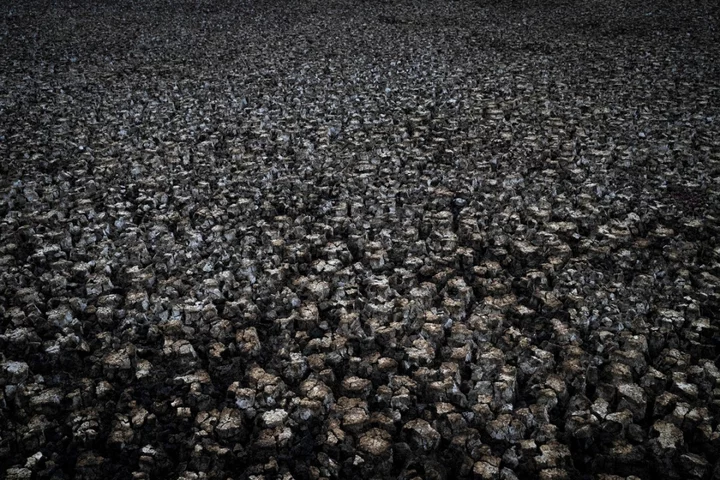
Spain announces a 1.4 billion-euro deal to help protect the prized Doñana wetland from drying up
National and regional authorities in Spain signed an agreement Monday to invest 1.4 billion euros ($1.5 billion) in areas around the treasured national park of Doñana in a bid to stop the park from drying up. Ecological Transition Minister Teresa Ribera said the plan was aimed at encouraging farmers to stop cultivating crops that rely heavily on water from underground aquifers that have been overexploited in recent years, damaging one of Europe’s largest wetlands. “This is an agreement with which we put an end to pressure on a natural treasure the likes of which there are few in the world,” Ribera said. Andalusia regional President Juan Moreno said farmers will receive financial incentives to stop cultivating and to reforest land in and around some 14 towns close to Doñana. He said farmers who wish to continue cultivating will receive less money but must switch to farming dry crops ecologically. As part of the agreement, Andalusia will cancel previously announced plans to expand irrigation near Doñana, a decision that UNESCO, the central government and ecologists criticized for putting more pressure on the aquifer. A UNESCO World Heritage Site and Biosphere Reserve, Doñana is a wintering site for half a million waterfowl and a stopover spot for millions more birds that migrate from Africa to northern Europe. Ecologists working in and near the park have long warned that its ecosystem of marshes and lagoons is under severe strain because of agriculture and tourism. The situation has been made worse by climate change and a long drought, along with record high temperatures. Andalusia recently announced a plan to allow the Doñana park to annex some 7,500 hectares (18,500 acres) by purchasing land from a private owner for 70 million euros. Doñana currently covers 74,000 hectares (182,000 acres) on an estuary where the Guadalquivir River meets the Atlantic Ocean on Spain’s southern coast. ___ Follow AP’s climate and environment coverage at https://apnews.com/hub/climate-and-environment Read More Elon Musk visits Israel to meet top leaders as accusations of antisemitism on X grow Tesla sues Swedish agency as striking workers halt delivery of license plates of its new vehicles Qatar is the go-to mediator in the Mideast war. Its unprecedented Tel Aviv trip saved a shaky truce
2023-11-27 21:46
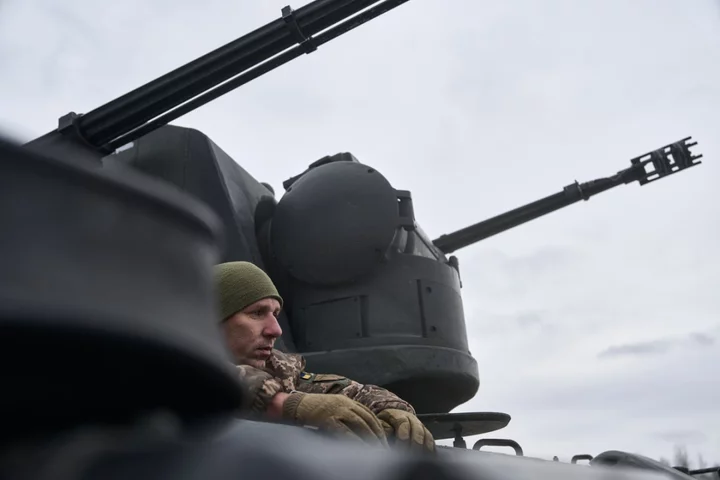
Russia-Ukraine war – live: Putin ‘senselessly sending Russians to die’ amid highest casualties since war began
Vladimir Putin has been accused of “senselessly sending more Russians to die than at any time since the war began” as neither Moscow or Kyiv appear to be making any substantial advancement in the 21-month-old conflict. UK Defence Secretary Grant Shapps made the strong claim on X, formerly called Twitter, as the Ministry of Defence released figures showing the number of Russians casualties had risen to an average 931 a day this month. The number, from Ukraine’s General Staff and described as “plausible” by the MoD, is higher than the previously reported deadliest month in March, when there were an average 76 deaths and injuries a day. The increase comes as Russia, which widened its conscription programme earlier this year, continues its assault on the key towns of Donbas and Avdiivka. Both attacks, the MoD say, contribute to the casualties. Mr Shapps wrote: “Putin is stepping up his invasion - senselessly sending more Russians to die than at any time since the war began. “Ukrainian bravery and western support is holding back their advance, but we cannot be complacent. Ukraine needs our unwavering support to fight and win.” Read More World’s attention must ‘stay on Ukraine’, warns ex-Nato chief 'You’ll die in this pit': Takeaways from secret recordings of Russian soldiers in Ukraine Dead, wounded or AWOL: The voices of desperate Russian soldiers trying to get out of the Ukraine war Kyiv hit by biggest Russian drone attack since war began
2023-11-27 20:46

More than half a million people left without power in Crimea, Russia and Ukraine after huge storm
More than half a million people were left without power in Crimea, Russia and Ukraine after a storm in the Black Sea area flooded roads, ripped up trees and took down power lines, Russian state news agency Tass and Ukraine's energy ministry said. Meanwhile, the Moscow region experienced its heaviest snowfall in 40 years, the governor said. The storms and snowfall were part of a weather front that left one person dead and many places without electricity amid heavy snow and blizzards in Romania and Moldova on Sunday. The head of Russia's national meteorological service said the storm that hit Crimea was the most powerful since record keeping began, state news agency RIA Novosti reported. Crimea was annexed from Ukraine by Russia in 2014 and is a key military and logistics hub for Russia as it pursues its war in Ukraine. It is unclear whether the storm damaged any Russian military equipment or defenses. The storm also hit southern Russia and sent waves flooding into the beach resort of Sochi, blew the roof off a five-story building in Anapa and damaged homes and schools in Kuban, the state news agency said. It also caused a cargo ship to run aground near Anapa. Local Russia-installed officials said one person died in Crimea after going out to look at the waves in a village near the town of Sudak in the southern part of the peninsula, while other people were hospitalized or evacuated from their homes. The government in Crimea told people to stay at home on Monday and closed government facilities including schools and hospitals as strong winds were expected to continue. The storm prompted several Crimean regions to declare a state of emergency, Tatyana Lyubetskaya, a Russia-installed official at the Crimean environmental monitoring department, told Tass. Roman Vilfand, the head of Russia’s national meteorological service, told RIA Novosti that a similar storm hit the region in November 1854 during the Crimean War. It aused at least 30 ships to sink off Crimea’s coast, RIA Novosti said. The head of one Crimean region, Natalia Pisareva, said everyone in the Chernomorske area of western Crimea lost water supply as well as central heating because pumping stations had lost power. There were also reports of a problem with a gas pipeline in Saky in western Crimea. Around 800 exotic fish died in an aquarium in Sevastopol after the room they were in was flooded, the Crimea 24 TV channel reported. The fish, including pikes and piranhas, died from thermal shock after cold sea water flooded the aquarium, the aquarium director told RIA Novosti. Ukraine's Ministry of Energy said more than 2,000 towns and villages were without electricity in 16 Ukrainian regions, including Kyiv, Odesa and Mykolaiv. It said it expected the weather to worsen, with forecasters predicting more strong winds and snowfall. In southern Russia, the Caspian Pipeline Consortium stopped crude oil loading at the Novorossiysk port on Monday due to “extremely unfavorable weather conditions,” including winds of up to about 86 kilometers (54 miles) per hour and waves of up to 8 meters (26 feet). Heavy snow in the Moscow region caused drifts of up to 25 centimeters (almost 10 inches), three times more than normal, Tass said. Andrei Vorobyov, the governor of the Moscow region, said about 3,000 people worked to clear the streets after the heaviest snowfall in 40 years. In Serbia, heavy snow that fell over the weekend left villages cut off and thousands of people without electricity. A 53-year-old man was reported missing on Sunday in central Serbia and the search for him is continuing, RTS state television reported. Read More Ukraine aims a major drone attack at Crimea Russia puts Ukrainian winner of 2016 Eurovision on wanted list Ukraine's troops work to advance on Russian-held side of key river after gaining footholds Ukrainian marines claim multiple bridgeheads across a key Russian strategic barrier Russia admits Ukrainian troops crossed Dnipro river but says ‘fiery hell’ awaits them Blow for Putin as Ukraine takes major step in bid to outflank Russian troops
2023-11-27 20:28

Six teenagers on trial for alleged role in beheading of French teacher who showed Islamic cartoon
Six teenagers go on trial Monday in Paris for their alleged roles in the beheading of a teacher who showed caricatures of the prophet of Islam to his class, a killing that led authorities to reaffirm France's cherished rights of expression and secularism. Samuel Paty, a history and geography teacher, was killed on Oct. 16, 2020, near his school in a northwest Paris suburb by an 18-year-old of Chechen origin who had become radicalized. The attacker was in turn shot dead by police. Paty’s name was disclosed on social media after a class debate on free expression during which he showed caricatures published by the satirical newspaper Charlie Hebdo, which triggered a newsroom massacre by extremists in January 2015. All hearings at a Paris juvenile court are to be held without media in accordance with French law regarding minors. Among those going on trial, a teenage girl, who was 13 at the time, is accused of making false allegations for wrongly saying that Paty had asked Muslim students to raise their hands and leave the classroom before he showed the cartoons. She later told investigators she had lied. She was not in the classroom that day and Paty did not make such a request, the investigation has shown. Five other students of Paty's school, then 14 and 15, are facing charges of criminal conspiracy with the aim of preparing aggravated violence to be committed. They are accused of having waited for Paty for several hours until he left the school and of having identified him to the killer in exchange for promises of payments of 300-350 euros ($348-$406). The investigation established that the attacker knew the name of the teacher and the address of his school, but he did not have the means to identify him. All six teenagers are facing 2 1/2-year in prison. The trial is scheduled to end on Dec. 8. Eight other adults are to be sent to trial later. They include the father of the teenage girl charged with false allegations. At the time, he had posted videos on social media that called for mobilization against the teacher. A radical Islamic activist who helped him disseminate the virulent messages naming Paty has also been charged. The trial comes six weeks after a teacher was fatally stabbed and three other people injured in a school attack by a former student suspected of Islamic radicalization. The killing in a context of global tensions over the Israel-Hamas war led French authorities to deploy 7,000 additional soldiers across the country to bolster security and vigilance. Read More Pope Francis getting antibiotics intravenously for lung problem, limiting appointments, Vatican says Biden to convene new supply chain council and announce 30 steps to strengthen US logistics Jill Biden says White House decor designed for visitors to see the holidays through a child's eyes Representatives of European and Arab countries meet in Barcelona to discuss the Israel-Hamas war Wilders ally overseeing first stage of Dutch coalition-building quits over fraud allegation Live updates | Israel and Hamas prepare for fourth swap as mediators seek to extend cease-fire
2023-11-27 19:18
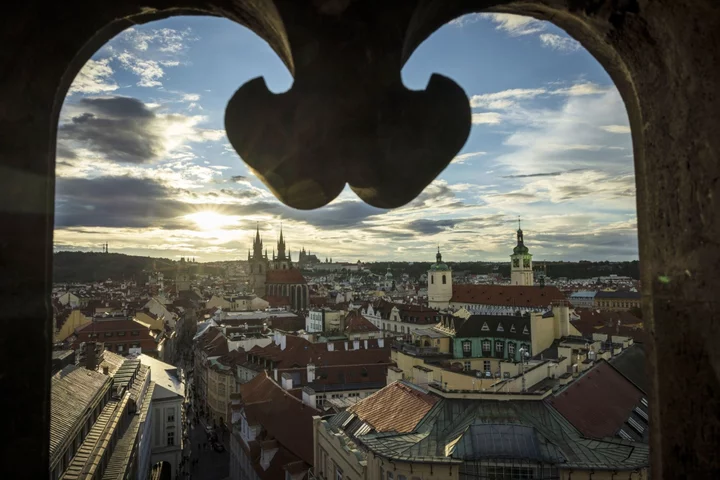
Austerity Plans Spark Protests, Close Schools in Czech Republic
The Czech Republic is facing one of the biggest displays of public discontent since the fall of communism
2023-11-27 18:51
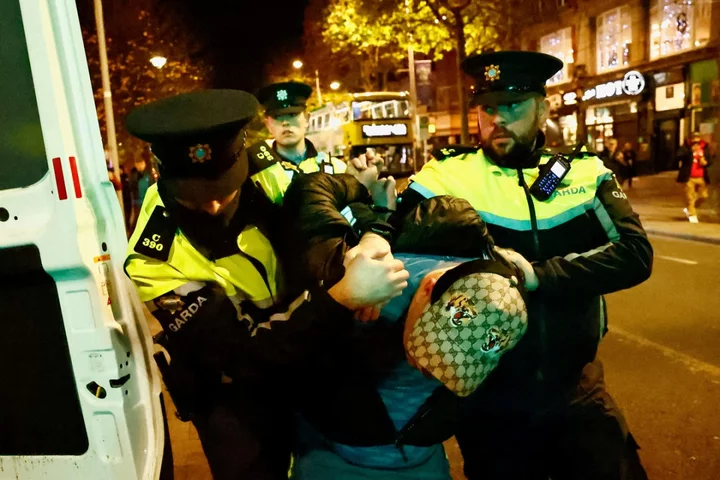
Dublin riots – latest: Stabbing suspect ‘may have suffered permanent brain injuries’
The suspect in the Dublin nursery stabbing which sparked violent riots in Ireland’s capital has suffered “extensive” brain injuries which “may be permanent”, it has been claimed. An Garda Siochana did not comment on claims by a source who told the Irish Mirror that the suspect “is in a bad way”, adding: “His head injuries are extensive and may be permanent.” It comes as the five-year-old girl who was stabbed remains in critical condition at CHI Temple Street, while the children’s care assistant, a woman aged in her 30s, is in a serious but stable condition in The Mater Hospital. Sinn Fein leader Mary Lou McDonald insisted on Monday that justice minister Helen McEntee and Garda Commissioner Drew Harris’s positions were “untenable”, warning that “we now have a scenario where people do not feel safe in parts of Dublin's inner city”. Ireland’s further education minister Simon Harris pledged that there would be a “full review” of the policing of the riots which engulfed parts of central Dublin on Thursday, which he condemned as “absolute opportunistic criminality and thuggery”. Read More Over £280,000 raised for Deliveroo hero who stopped Dublin child knife attack Elon Musk weighs in on Dublin riots claiming country’s PM ‘hates the Irish people’ How the Dublin riots began: From flares and fireworks at a crime scene to hundreds-strong mob Heroic Katie Taylor earns redemption and unites Dublin with special win over Chantelle Cameron
2023-11-27 17:52

Representatives of European and Arab countries meet in Barcelona to discuss the Israel-Hamas war
Delegations from European Union member states and Middle Eastern and north African countries are meeting Monday in Barcelona, Spain, to discuss the crisis in Gaza, where a fragile pause in fighting is set to expire. Forty-two delegations are scheduled to gather at the event hosted by the Union for the Mediterranean, with many represented by their foreign ministers. The meeting is chaired by the EU’s foreign policy chief, Josep Borrell, and Jordanian Foreign Minister Ayman Safadi. Israel is not attending the meeting, which in past years has largely become a forum for cooperation between the EU and the Arab world. Monday’s gathering was supposed to focus on the role of the union 15 years after its founding, but it has taken on new significance since the Oct. 7 Hamas attack on Israel and Israel’s ensuing war in the Gaza Strip. Borrell said he “regretted” the absence of Israel. He repeated his condemnation of the Hamas attack, while calling on Israel to permanently end its assault, which he said has claimed the lives of over 5,000 children. “One horror cannot justify another horror,” Borrell said. “Peace between Israel and Palestine has become a strategic imperative for the entire Euro-Mediterranean community and beyond." Jordan’s Safadi, who told The Associated Press on the eve of the event that he hopes the talks will help “bridge a gap” between Arab and European countries, urged the officials attending the meeting to back a two-state solution that would recognize a Palestinian state. “My friends, Europe has a crucial role to play,” Safadi said. “The two-state solution cannot remain a talking point.” Saudi Arabia’s Prince Faisal bin Farhan Al Saud has also been invited to the event. A small pro-Palestinian group rallied before the gathering at the art nouveau building that once housed Barcelona's Sant Pau Hospital. The pause in hostilities between Israel and Hamas continued Sunday with a third day of releases of hostages and Palestinian prisoners. It was scheduled for four days and neither side has made fully clear what comes after Monday. Spain is one of the EU countries that has called for Israel to cease its assault, while also condemning the Hamas attack. Spanish Prime Minister Pedro Sánchez said the time has come for the international community and the EU to recognize a Palestinian state during a trip with his Belgian counterpart to Israel, the Palestinian territories and Egypt last week. That prompted Israel to summon the Belgian and Spanish ambassadors. The Union for the Mediterranean is an intergovernmental organization formed by the 27 members of the EU and 16 from the southern and eastern Mediterranean including Israel, the Palestinian Authority, Egypt, Lebanon and Jordan. The EU is the world’s biggest provider of assistance to the Palestinians. Almost 1.2 billion euros ($1.3 billion) has been earmarked for 2021-2024. ___ This story has been corrected to show that Israel summoned the ambassadors of Spain and Belgium, not that it recalled its ambassadors to those countries. Read More Jordan's top diplomat wants to align Europeans behind a call for a permanent cease-fire in Gaza Israel summons Irish ambassador over tweet it alleges doesn't adequately condemn Hamas Why Finland is blaming Russia for a sudden influx of migrants on its eastern border Israel summons Spanish, Belgian ambassadors following criticism during visit to Rafah Slovak leader calls the war between Russia and Ukraine a frozen conflict Activists call on France to endorse a consent-based rape definition across the entire European Union
2023-11-27 17:47
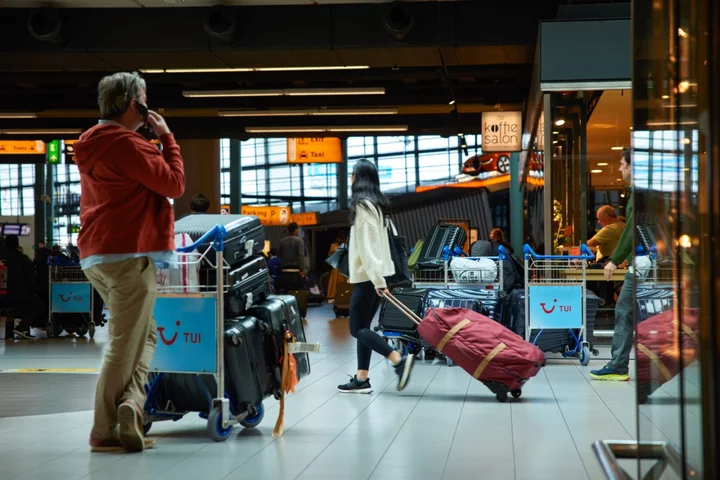
Amsterdam’s Schiphol Airport Owner Names Van Oord as CEO
Amsterdam airport’s owner Royal Schiphol Group has appointed Pieter van Oord as its next chief executive officer after
2023-11-27 17:46
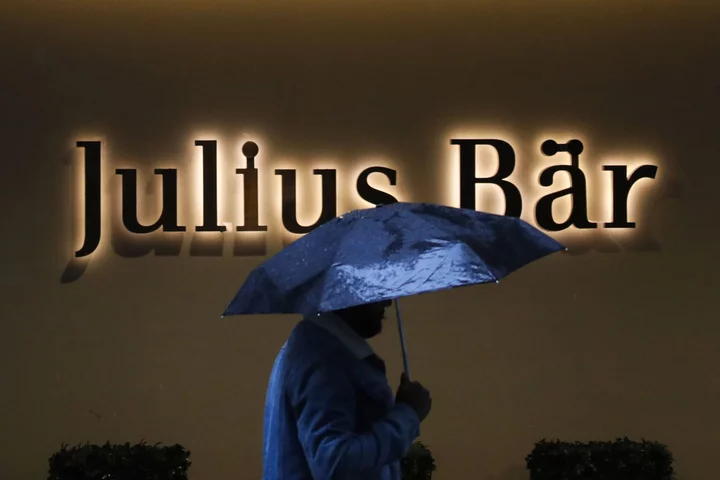
Julius Baer to Review Private Debt Business Over Signa Exposure
Julius Baer Group Ltd. is reviewing a business that extends loans to some of its wealthiest clients after
2023-11-27 16:55

Rightmove Rewarded by Tough Housing Market: The London Rush
Hi, I’m Leo from Bloomberg’s UK Breaking News team, catching you up on this morning’s business stories. There’s
2023-11-27 16:52
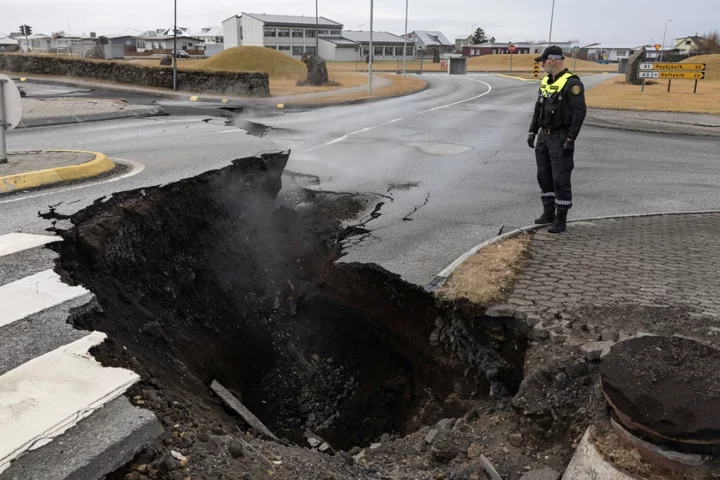
Iceland volcano – live: Met Office records strongest earthquake in 48 hours as fears over eruption remains
The strongest earthquake in 48 hours was detected near the evacuated town of Grindavik this morning, as the Icelandic Met Office continues to warn of the “persistent likelihood of an imminent eruption”. In its latest update, the forecaster said there were around 300 earthquakes on Sunday, with a “swarm” near the town which lasted just over an hour before midnight. They included a earthquake with a magnitude of 3, located three miles north easts of Grindavik, at 00.26am on Monday. Over the previous 48 hours, the strongest earthquake had a 2.7 magnitude. A fortnight ago, Grindavik was evacuated after magma-induced seismic activity tore vast chasms through the streets of the town. While hundreds of earthquakes are still hitting the surrounding area daily, “seismic activity continues to decrease”, said the Icelandic Met Office, adding: “The likelihood of an imminent volcanic eruption diminishes with time.” However, one civil protection official told theThe Independent “It is still dangerous here ... I have never seen anything like it before. Usually we will have a few minutes warning to get out, but with the weather like it is today, we have even less.” Read More What to do with Grindavík: Has Iceland’s #1 selfie spot just emerged out of the ground? Is it safe to travel to Iceland? Your rights if you have a holiday booked Every resident of an Icelandic town was evacuated due to a volcano. Daring rescuers went back to save the pets Inside the abandoned Iceland town left in limbo by a volcano
2023-11-27 16:28
